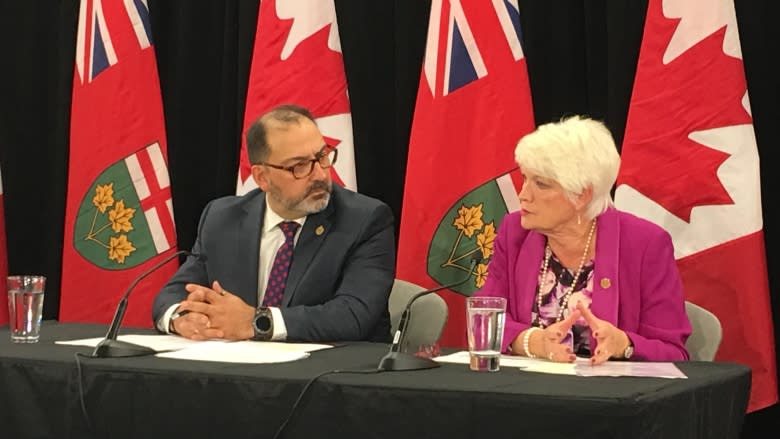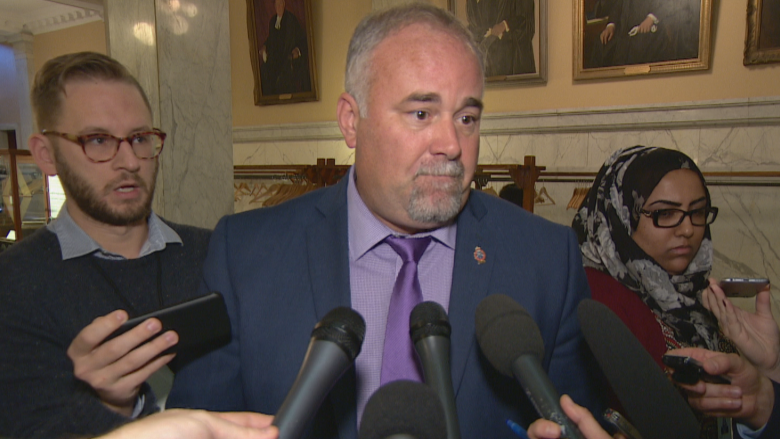Auditor general blasts Kathleen Wynne's 'Fair Hydro Plan'
The Wynne government created a "needlessly complex" scheme to pay for its hydro rate cuts without showing the costs on its own bottom line, Ontario's auditor general said in a critical report released Tuesday.
Auditor General Bonnie Lysyk investigated the financing of what the Ontario Liberals call the "Fair Hydro Plan." The plan has reduced the average household electricity bill in the province by 25 per cent from the peak in the summer of 2016.
Lysyk said the government is "improperly" accounting for the $26 billion in debt the province is taking on to cut hydro bills in the short term.
The $26 billion is being borrowed through Ontario Power Generation, so will not appear on the province's books. Electricity customers will pay off that debt through rate increases spread out over the next 30 years.
The government chose that financing scheme "to keep deficits and an increase in net debt from showing up on the Province's books," Lysyk said in the report, tabled Tuesday morning in the Legislature.
"The government created a needlessly complex accounting / financing structure for the electricity rate reduction in order to avoid showing a deficit or an increase in net debt," writes Lysyk .
The auditor says the plan could also result in Ontarians paying "up to $4 billion more than necessary" in interest. That's because OPG will be required to pay higher interest rates than the province would if the government took on the debt directly.
Lysyk told a news conference that the government is "wrong" in how it's accounting for the borrowing.
"Anywhere else in Canada, you won't see this done," she said. "The government's proposal is to treat that loss as an asset.
"That's like you treating your credit card debt as an asset in your books. Does that sound right to you?"
Rate cut won't last: Lysyk
The hydro rate cuts will not last, Lysyk found. "From 2028 on, ratepayers will be charged more than the actual cost of the electricity being produced in order to pay back the borrowings," she said in the report.
"The improper accounting also inappropriately transfers long-term accountability for significantly higher electricity bills to future governments," writes Lysyk. "Future governments will have to explain to ratepayers why electricity rates charged in 2028 and beyond exceed the actual cost of electricity."
The Wynne government is already trying to dismiss all of the auditor's findings.
"The government of Ontario does not agree with the assertions and conclusions expressed in the report," said an official response issued together with the auditor's report.
The Liberals are portraying the controversy as an "accounting dispute" with the auditor and describing their method of financing the debt as the normal course of business.
"There were no fast ones being pulled at all," said Energy Minister Glenn Thibeault at a news conference Tuesday. "We always said it's going to take longer to pay off and it's going to cost more."
"We're not inventing something new," said Treasury Board president Liz Sandals.
The opposition parties are seizing on the auditor's report.
PC critic calls move 'deceitful, dishonest'
The Fair Hydro Plan "was simply a ploy to hide the actual cost of this borrowing scheme ... and at the same time, tell people in Ontario that they had balanced the budget," PC energy critic Todd Smith told reporters at Queen's Park.
"It is deceitful, it's dishonest and it's shady," said Smith.
"We've got an Enron-style accounting system that's being set up by the Liberals to hide the debt they're taking on so that the books will look good in the next election," said NDP energy critic Peter Tabuns.
Ontario's financial accountability officer has already described the scheme as a "complicated accounting structure" that will increase gross debt by approximately $26 billion by 2027-28, but not show any impact on the government's books.


